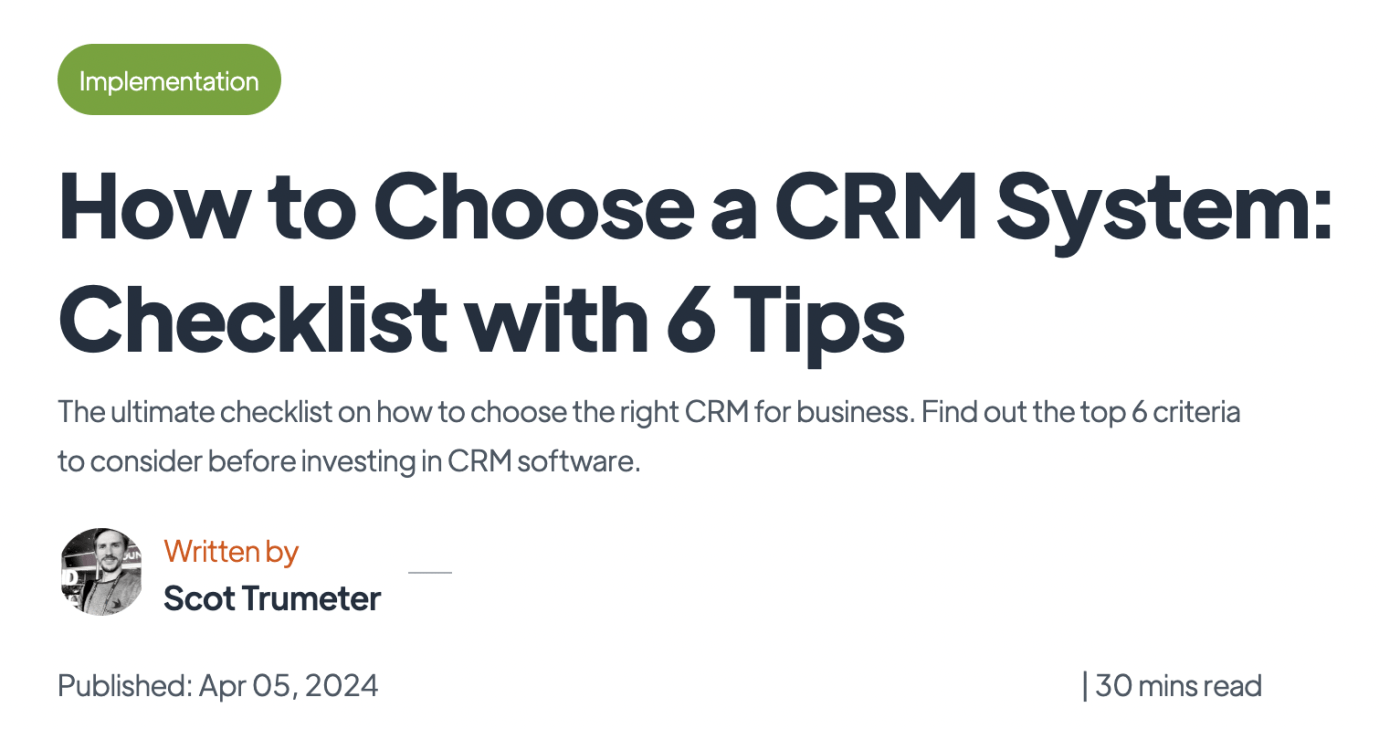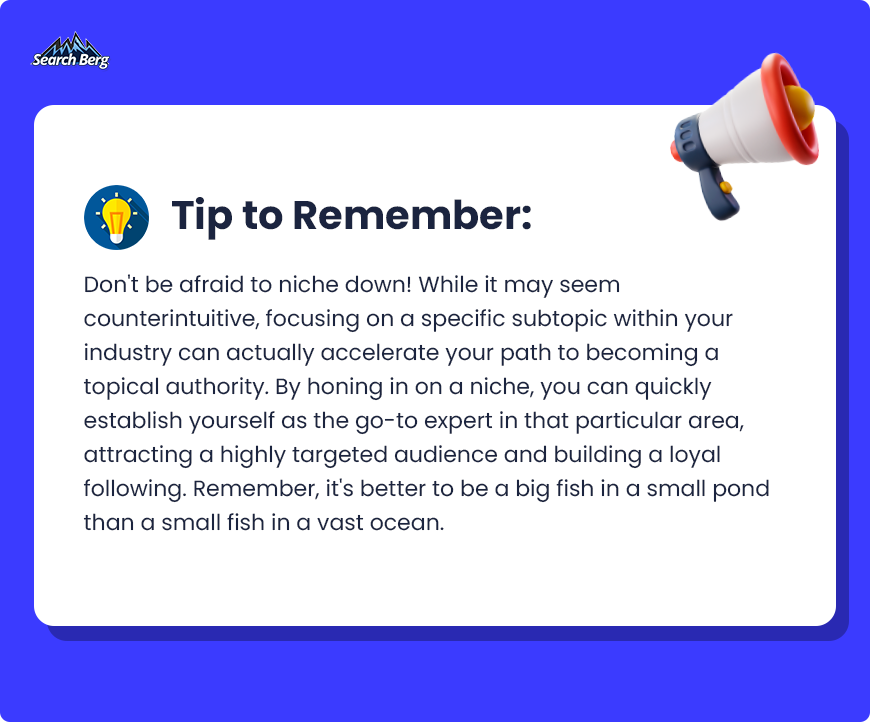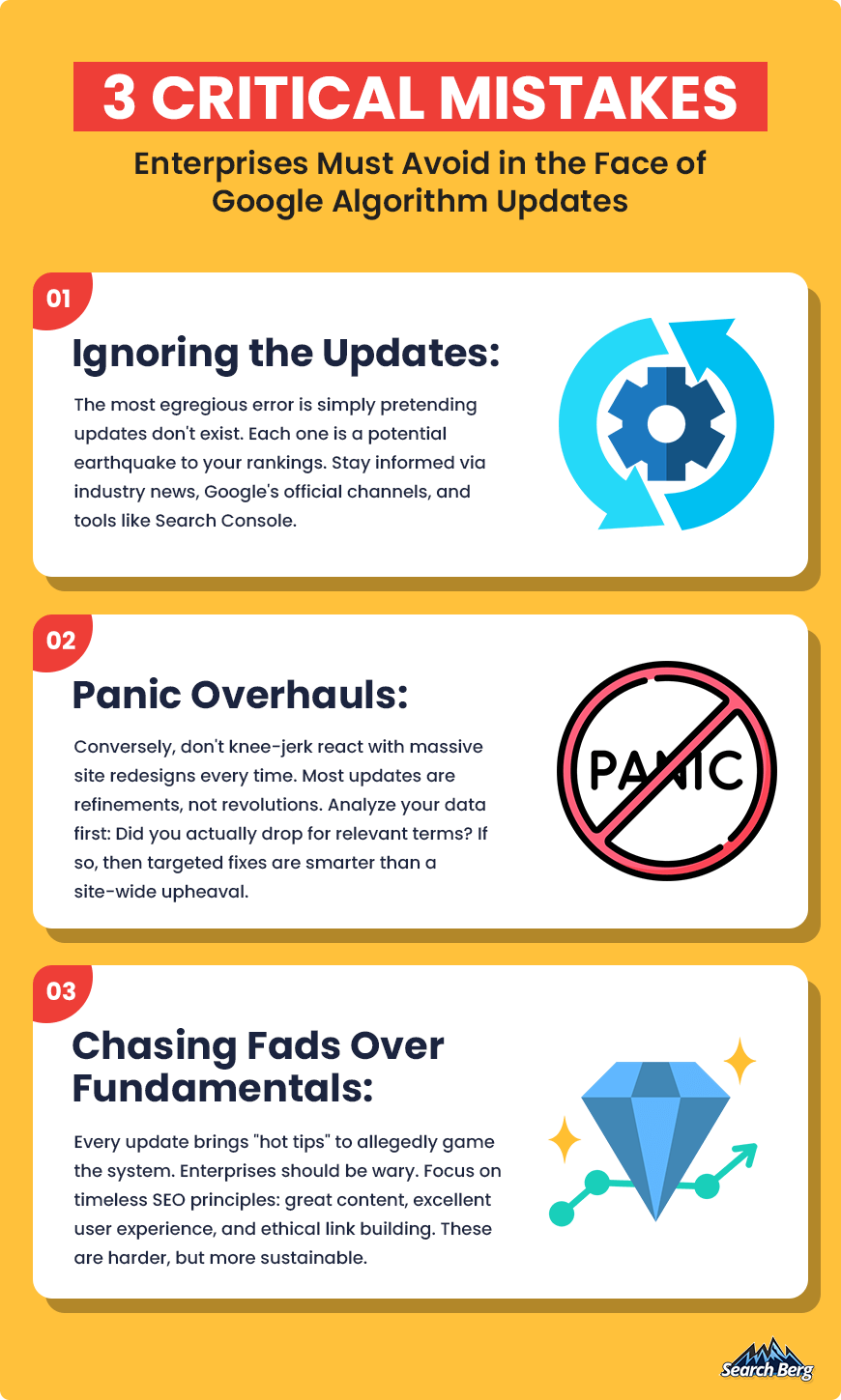Top Enterprise SEO Techniques to Dominate Search Results
As an enterprise marketer, pressure is your middle name. You need results and fast. Flashy campaigns may grab attention, but they rarely translate to sales. Chasing trends is a losing game, and social media engagement doesn’t always translate to conversions.
Enterprise SEO is your secret weapon for predictable, sustainable growth. We ditch the guesswork and focus on data-driven strategies. The result? Organic traffic from qualified leads who are ready to buy.
In this blog, we’re breaking down the art of dominating search results with masterful enterprise SEO solutions. Suppose you’ve been feeling the pressure to deliver. In that case, it’s time to toss the shiny gimmicks and opt for effective, reliable enterprise SEO instead. Let’s show you the way.
How Exactly is Enterprise SEO Different from Regular SEO?
Before we dive into the nitty-gritty of dominating search results, let’s clear up a common question: What sets enterprise SEO apart from “regular” SEO?
Think of it this way. Regular SEO is like optimizing a speedboat for a smooth lake ride. It’s focused, agile, and you can see results relatively quickly. Enterprise SEO, on the other hand, is like navigating a massive cruise ship through a busy harbor. There are more moving parts, higher stakes, and a longer journey to success.
Key Differences to Keep in Mind:
- Scale: Enterprise websites often have thousands (even millions) of pages, complex structures, and multiple subdomains. This sheer size requires a different level of organization and technical know-how compared to smaller websites.
- Competition: Large businesses typically compete with other established players in their industry. This means fighting for those coveted top search rankings demands a more sophisticated strategy and consistent effort.
- Resources: Enterprise SEO often involves a dedicated team of specialists, including content creators, technical SEO experts, analysts, and project managers. This collaborative approach is essential for managing the complexity and scale of enterprise-level SEO.
- Data: The volume of data generated by enterprise websites is immense. Analyzing and leveraging this data is essential for identifying trends, optimizing campaigns, and measuring ROI.
Now, there are countless enterprise SEO solutions out there, but let’s be honest, you’re not here to play around. You want to dominate search results, outshine your competitors, and drive meaningful business growth.
Team Search Berg has handpicked the most potent strategies that will improve your visibility and help you achieve true SEO supremacy. Let’s begin.
Enterprise SEO Tricks Revealed
1. Create Smart Content
In the ultra-competitive, cutthroat game of enterprise SEO, generic, unoptimized content is a recipe for failure. It’s like bringing a butter knife to a gunfight. You need a weapon that’s intelligent, powerful, and laser-focused on achieving top rankings. You need smart content.
What is Smart Content?
Smart content is strategically crafted content that resonates with your target audience and appeals to search engines. It’s the intersection of creativity, data-driven insights, and technical SEO expertise.
Think of it this way:
- Relevance: Smart content addresses the specific needs, pain points, and questions of your ideal customers. The focus is on providing genuine value and solutions.
- Optimization: Smart content is meticulously optimized for both on-page and off-page SEO factors. It includes well-researched keywords, compelling meta descriptions, internal and external links, and a structure that’s easy for search engines to understand.
- Engagement: Smart content is designed to captivate readers, encourage social sharing, and ultimately drive conversions. It tells a story, sparks emotions, and leaves a lasting impression.
Examples
An enterprise SaaS company may publish a blog titled “How to Choose a CRM System: Checklist with 6 Tips.” If they have SERP rankings in mind, this wouldn’t just be a generic overview; it would be an exhaustive resource that covers everything from defining CRM needs to comparing different vendors, evaluating features, and providing a step-by-step implementation guide. By offering this level of detail and expertise, the company can succeed in attracting high-quality leads and solidifying its position as a trusted advisor in the CRM space.
What would this look like?
Something like this:

Similarly, a manufacturing company could create a series of articles exploring the latest trends and innovations in their industry. Each article could focus on a specific topic, e.g., the rise of 3D printing or the impact of artificial intelligence on production processes. By providing valuable insights and analysis, the company can showcase its thought leadership and engage potential customers who are actively seeking information.
The Recipe for Smart Content
Smart content revolves around quality, insightfulness, value, and richness; there is no doubt about it. But that’s not all. Optimization is a key player that takes all the goodness you’re providing to your audience and adds the coveted cherry of rankings on top of it.
Optimization is where the technical prowess of SEO meets the heart and soul of your content. For enterprise-level organizations, this is non-negotiable. It’s not enough to merely have content; your content must be meticulously sculpted to align with both user intent and search engine algorithms.
Let’s say you’re working on an in-depth guide on international tax law. Optimization here would involve ensuring the content is structured in a way that’s easily digestible for both readers and search crawlers. This means incorporating relevant keywords (like “international tax law,” “e-commerce taxes,” and “cross-border tax compliance”) naturally throughout the piece. It also means using header tags (H2, H3, etc.) to organize the information logically, making it easy for readers to scan and find what they need.
It doesn’t end there. You must also ensure your content is technically sound. This includes optimizing images for faster loading times, using internal links to guide users to other relevant pages on your site, and making sure your website is mobile-friendly. These technical elements may seem minor, but they can significantly impact your search rankings.
Keep in mind that search engines are constantly evolving. What worked yesterday may not work today. What works today may not work tomorrow. For enterprises, this means staying abreast of the latest algorithm updates and adapting your optimization strategies accordingly.
For example, the rise of voice search (more on this later) has made it important to optimize content for natural language queries. Instead of strictly targeting keywords like “best CRM software,” you must also optimize for phrases like “What’s the best CRM software for my business?”
Why is this level of optimization so important for enterprises? The answer lies in the competitive terrain. Large organizations are often vying for the same keywords and search rankings as their rivals. In this high-stakes environment, even minor optimization missteps can mean the difference between page one visibility and obscurity.
In the grand scheme of enterprise SEO, smart content is the backbone of a successful online presence. By investing in this critical area, you’ll enjoy stellar search engine rankings and manage to build a solid foundation for long-term growth and success.
2. Build Topical Authority
What makes a user click on your link? Why should they believe that your enterprise holds the answers they seek? The answer lies in a concept that’s often overlooked but incredibly powerful: topical authority.
Think of it as the digital equivalent of word-of-mouth marketing but on a massive scale. When your enterprise consistently produces high-quality, in-depth content on specific topics, you’re not just filling web pages; you’re building a reputation. You’re becoming the expert, the go-to source that people recommend to their colleagues, share on social media, and reference in their work.
Building topical authority doesn’t mean gaming the system or manipulating algorithms. Instead, the goal is to demonstrate genuine expertise and provide value to your audience. When you consistently deliver insightful, well-researched content that answers their burning questions and solves their problems, you earn their trust. And in the digital age, trust is the most valuable currency.
A Multi-Faceted Approach for Topical Authority
- In-Depth Content: This is the foundation of your authority. Whitepapers detailing complex technical processes, comprehensive guides on industry regulations, and case studies showcasing your successful solutions all contribute to establishing your expertise.
- Consistent Publishing: Regularly updating your website with fresh, relevant content signals to both search engines and your audience that you are actively engaged in your field and committed to staying ahead of the curve.
- Internal Linking: Creating a web of interconnected content on your site helps search engines understand the breadth and depth of your knowledge, reinforcing your authority across multiple related topics.
- External Backlinks: When other reputable websites in your industry link to your content, it acts as a powerful endorsement of your expertise, further solidifying your authority in the eyes of search engines and users alike.
- Subject Matter Experts: Partnering with or featuring recognized experts in your field adds an extra layer of credibility to your content. It demonstrates that you are both knowledgeable and connected to the leading voices in your industry.
- Data and Research: Supporting your claims with solid data and research is vital for establishing trust and demonstrating the rigor of your approach. This is especially important in industries where accuracy and reliability are paramount.

Which Indicators Should You Focus on?
While topical authority isn’t a metric you can directly pull up on a dashboard, it’s not an elusive phantom either. Think of it more like reading tea leaves; you need to interpret multiple signals to get a clear picture. These indicators, when combined, paint a vivid portrait of your brand’s growing expertise and influence.
- Keyword Rankings: For enterprises, this means tracking not just broad, high-volume keywords, but also long-tail, industry-specific terms that demonstrate your niche expertise. Consistently ranking high for these targeted keywords indicates that search engines recognize your authority within a specific domain.
- Backlink Profile: The quality of your backlinks matters more than quantity. For enterprises, a single link from a reputable industry publication or a well-respected thought leader can carry more weight than multiple links from low-authority sites.
- Social Mentions: Beyond the number of mentions, it’s important to analyze the sentiment and engagement surrounding your brand on social media. Are you sparking conversations? Are industry influencers sharing your content? These are signs that your topical authority is resonating.
- Organic Traffic: A steady increase in organic traffic, particularly from relevant keywords and long-tail queries, suggests that your content is attracting the right audience: those who are genuinely interested in your expertise.
- Brand Mentions: For enterprises, brand mentions in industry publications, trade journals, and conferences are powerful indicators of authority. They demonstrate that your brand is recognized and respected within your field.
By monitoring these indicators and analyzing the data over time, you can gain valuable insights into the effectiveness of your topical authority-building strategies. This will help you refine your approach, identify areas for improvement, and ultimately solidify your brand’s position as a trusted leader in your industry.
Examples
IBM, a tech giant, is an excellent example of an enterprise speedily climbing Google search engine results pages (SERPs) by building topical authority. They didn’t just focus on their broad range of products and services; they strategically targeted specific areas like artificial intelligence, cloud computing, and quantum computing.
By consistently publishing in-depth whitepapers, research reports, and thought leadership articles on these topics, IBM established itself as a leading voice in the tech industry.
Another noteworthy example is Bloomberg, a global leader in financial data and news. They didn’t just rely on their reputation as a news provider; they actively built topical authority in specific areas like financial markets, economic analysis, and investment strategies. Their in-depth articles, expert opinions, and data-driven insights catered to their core audience of financial professionals and attracted a wider audience of investors and business leaders seeking reliable information and analysis.
This strategic approach to content creation and topical authority building allowed Bloomberg to dominate search results for a vast array of financial keywords, solidifying their position as a trusted source of information in the financial world.
Recommended Read: How to Turn Enterprise SEO Challenges into Opportunities
3.Pay Attention to Voice Search

“Alexa, find the best Thai restaurant near me.”
“Hey Siri, what’s the capital of Brazil?”
Sound familiar? These aren’t just casual questions; they’re a seismic shift in how we search, a shift enterprises can’t afford to ignore. We’re talking about the rise of voice search, a trend that’s transforming the enterprise SEO terrain and redefining what it means to “dominate” search results.
The focus isn’t just on keywords anymore. It’s also important to understand how people naturally speak, the questions they ask, and the way they interact with voice-activated devices. Think of it as the difference between a formal written query and a casual conversation with a friend.
For enterprises, this means a whole new set of rules. You can’t just rely on traditional keyword optimization; you need to understand the nuances of conversational language, anticipate your audience’s questions, and provide answers that are clear, concise, and easily understood by voice assistants.
The Smart Way to Jump on the Bandwagon
This shift presents a unique opportunity for enterprises to not only maintain their visibility but also dominate the search landscape in this emerging arena.
Here’s how:
- Natural Language Optimization: Enterprise content often leans towards formal, technical language. For voice search, try to adopt a more conversational tone. Think about how your customers would phrase a question out loud, and mirror that language in your content.
- Question-and-Answer Format: Enterprise websites are treasure troves of information. Structure your content to directly answer common questions your customers may have. This increases your chances of securing those coveted featured snippets that voice assistants often read aloud.
- Schema Markup: This technical element is essential for voice search. It helps search engines understand the context of your content, making it more likely to be selected for voice results. Think of it as adding labels to your digital content so voice assistants can easily categorize and retrieve it.
- Mobile Optimization: Voice search is predominantly used on mobile devices. A slow-loading, clunky mobile site is a major deterrent. Your website must be responsive, fast, and easy to navigate on smartphones and tablets. Work with an experienced enterprise SEO company with expertise in mobile development and optimization to master these ropes.
- Local SEO: For enterprises with physical locations, local voice search is a goldmine. Optimize your Google Business Profile listing with accurate information, encourage customer reviews, and ensure your NAP (name, address, phone) data is consistent across all online platforms.
- Long-Tail Keyword Research: Voice searches are often longer and more conversational than text searches. Think “What are the best enterprise project management tools?” instead of just “project management tools.” Research longer phrases and integrate them naturally into your content.
- Voice Search Analytics: Don’t just guess; measure! Utilize tools like Google Search Console to track which voice queries are bringing users to your site. This data is invaluable for refining your voice search strategy and ensuring you’re targeting the right keywords and phrases.
The next time you hear a voice-activated device chiming in with an answer, remember that it’s not just technology speaking; it’s a reflection of the brands that have mastered the art of voice search optimization. As an enterprise, you must proactively embrace this shift.
4. Don’t Lose Sight of Google Algorithm Updates

In the boardroom, we call it “managing risk.” In the SEO world, it’s called “keeping up with Google’s algorithm updates.”
But let’s be honest, it’s more like a high-stakes game of cat and mouse, where the rules change constantly, and the stakes are your enterprise’s online visibility. One wrong move, and you could plummet down the search rankings, losing valuable traffic, leads, and revenue.
It’s a harsh reality but one that every enterprise must face. Google’s algorithm is both your greatest ally and your most formidable adversary. It can propel your website to the top of search results or bury it in obscurity. And with each update, the playing field shifts, forcing you to adapt or be left behind.
For large organizations, the stakes are even higher. You have more to lose: a wider range of keywords, a larger website, and a greater reliance on organic search traffic to fuel your business growth. A sudden drop in rankings due to an algorithm update can have a cascading effect, impacting your brand reputation, lead generation, and, ultimately, your bottom line.
Zero-Click Searches
One of the most significant recent developments in Google’s algorithm is the rise of “zero-click searches.” These are searches where users find the information they need directly on the SERP without clicking through to a website. This can be in the form of featured snippets, knowledge panels, or answer boxes.
Here’s an example:

While no-click searches may seem like a threat to organic traffic, they also present a unique opportunity for enterprises.
Think of it as a prime piece of digital real estate on the SERP. By optimizing your content for featured snippets and other SERP features, you’re essentially claiming that coveted spot, showcasing your brand as the go-to authority on a given topic.
For enterprises, this visibility is invaluable. Even if users don’t immediately click through to your website, you’re still achieving several key objectives:
- Brand Awareness: Your brand name and logo are prominently displayed on the SERP, increasing brand recognition and recall among potential customers.
- Thought Leadership: Being featured in a snippet positions your brand as an expert on the topic, reinforcing your credibility and authority.
- Increased Impressions: Even without clicks, your content is still being seen by a vast audience, increasing your brand’s overall reach and exposure.
While capturing no-click search traffic shouldn’t be the sole focus of your enterprise SEO strategy, it’s a valuable component of a comprehensive approach. By optimizing for featured snippets and other SERP features, you’re not just competing for clicks; you’re competing for attention, establishing your brand as a trusted source of information in your industry.
In the enterprise domain, where brand reputation and visibility are paramount, securing those top spots on the SERP can have a significantly impact on your bottom line. It’s a strategic move that can drive long-term brand awareness, customer engagement, and, ultimately, business growth.
Spam Update
There’s one cardinal sin that Google never tolerates: spam. Think of it as the digital equivalent of a shady backroom deal; it may seem like a quick win, but it ultimately undermines your credibility and can have devastating consequences for your online presence.
Google’s spam update isn’t just a minor tweak; it’s a full-fledged crackdown on any tactics that attempt to manipulate search rankings through unethical means. It’s a clear message to enterprises: play by the rules or face the consequences.
The update targets a wide range of spammy behavior, including keyword stuffing, link schemes, cloaking, and hidden text. For enterprises, the consequences of being flagged for spam can be catastrophic. It can result in a significant drop in rankings, a loss of organic traffic, and a tarnished brand image. At a time when trust and credibility are paramount, a spam penalty can be a death knell for your online presence.
That’s why enterprises need to adopt a white-hat enterprise SEO strategy that prioritizes ethical practices and long-term sustainability. This means focusing on creating valuable content, earning legitimate backlinks, and avoiding any shortcuts that could put your website at risk. Yes, we mean any shortcuts, no matter how “clean” they may appear.
The March 2024 Core Update
The most significant Google update for enterprises in 2024, especially concerning rankings, is the March 2024 core update. This wasn’t a single change, but a sweeping set of refinements to multiple core ranking systems. Notably, it integrated the previous helpful content system into the core algorithm, meaning content quality is now even more central to good rankings.
Here’s what this means for enterprises:
- Quality Over Quantity: Google heavily favors in-depth, original, and genuinely helpful content. Enterprises must prioritize expert-level, well-researched pieces that truly address user needs.
- No More “SEO Content”: Content written solely for search engines, stuffed with keywords but lacking real value, is actively being demoted. Enterprises must focus on creating content for humans first and foremost.
- User Experience Matters: This update also emphasized page experience factors (site speed, mobile-friendliness, etc.). Enterprises must ensure their websites are technically sound and provide a smooth browsing experience on all devices.
Keep in mind that Google doesn’t just want to rank websites; it wants to connect users with the most relevant, valuable, and trustworthy information. By embracing this philosophy and aligning your SEO efforts with Google’s ever-evolving mission, you’ll end up pleasing both Google and your audience. And that’s the best win-win you could ask for.

5.Master Data Analytics

Intuition and gut feelings are no match for cold, hard facts. If you’re not measuring, you’re not managing. And if you’re not managing your SEO data, you’re essentially flying blind in a digital sky that’s constantly shifting and evolving.
In the context of enterprise SEO, data analytics is the process of collecting, calculating, evaluating, and interpreting data related to your website’s performance, user behavior, and search engine rankings. It’s the art of transforming raw data into actionable insights that can inform and refine your SEO strategy.
To truly master data analytics, enterprises must embrace a culture of data-driven decision-making. This involves:
- Invest in the Right Tools: Choosing the right data analytics platform is imperative. Look for tools that offer comprehensive tracking, customizable reporting, and integration with other marketing platforms.
- Set Clear Goals and KPIs: Define what success looks like for your enterprise SEO Whether it’s increasing organic traffic, improving conversion rates, or boosting brand awareness, setting clear goals will help you focus your data analysis and measure your progress.
- Regular Reporting and Analysis: Don’t just collect data and forget about it. Set up regular reporting schedules to review your data, identify trends, and uncover opportunities for improvement. This will help you make data-driven adjustments to your enterprise SEO strategy in real time.
- Experimentation and Testing: Data analytics can help you test different SEO hypotheses and measure the impact of your changes. You’ll be able to refine your strategies based on real-world results rather than guesswork.
Turn to the Experts
You may be thinking, “Can’t we just handle this data analytics thing in-house?” Sure, you could. But here’s the reality: enterprise SEO data isn’t your average spreadsheet. It’s a complex beast with terabytes of information, requiring specialized tools, expertise, and a whole lot of time to tame.
That’s where partnering with an enterprise SEO company, like Search Berg, can be a game-changer. As an experienced enterprise SEO agency, we live and breathe data. Our team has the tools, the know-how, and the experience to turn your data into a goldmine of insights.
We don’t just crunch numbers; we find hidden patterns, predict trends, and identify opportunities that can catapult your brand to the top of search results. We understand the unique challenges and complexities of enterprise SEO, and we tailor our data-driven strategies to your specific business goals.
We also have an excellent grasp of other facets of the enterprise SEO Rubik’s Cube: creating smart content, building topical authority, optimizing for voice search, and keeping up with Google’s algorithm updates.
If you’re ready to give your enterprise the rankings you’ve been eyeing, sign up for our enterprise SEO optimization services today. We start with a free, no-commitment consultation to give you a clear view of where you stand presently and what you’re in for.
Your journey to enterprise SEO dominance starts with a single click!
Outsmart, Outrank, Outperform
It’s time to transform your website from a digital brochure into a lead-generating machine. Search Berg’s enterprise SEO services are your secret weapon. Let’s turn those “missed” searches into “mission accomplished!” It all starts with a free consultation.
No spam, just expert advice!














